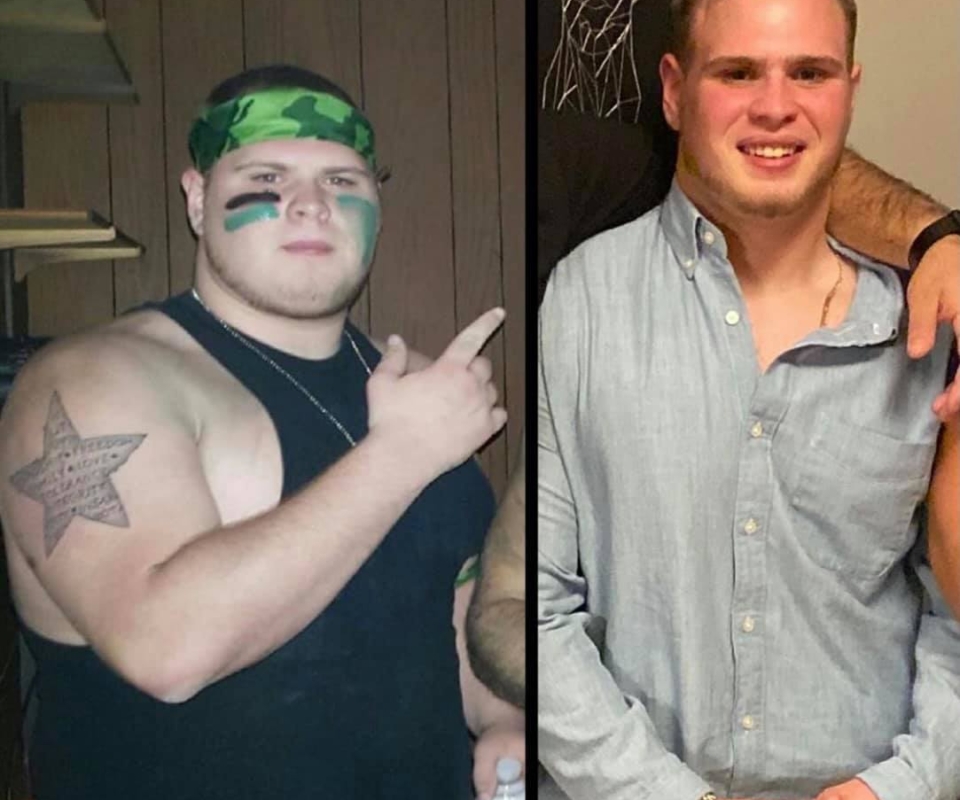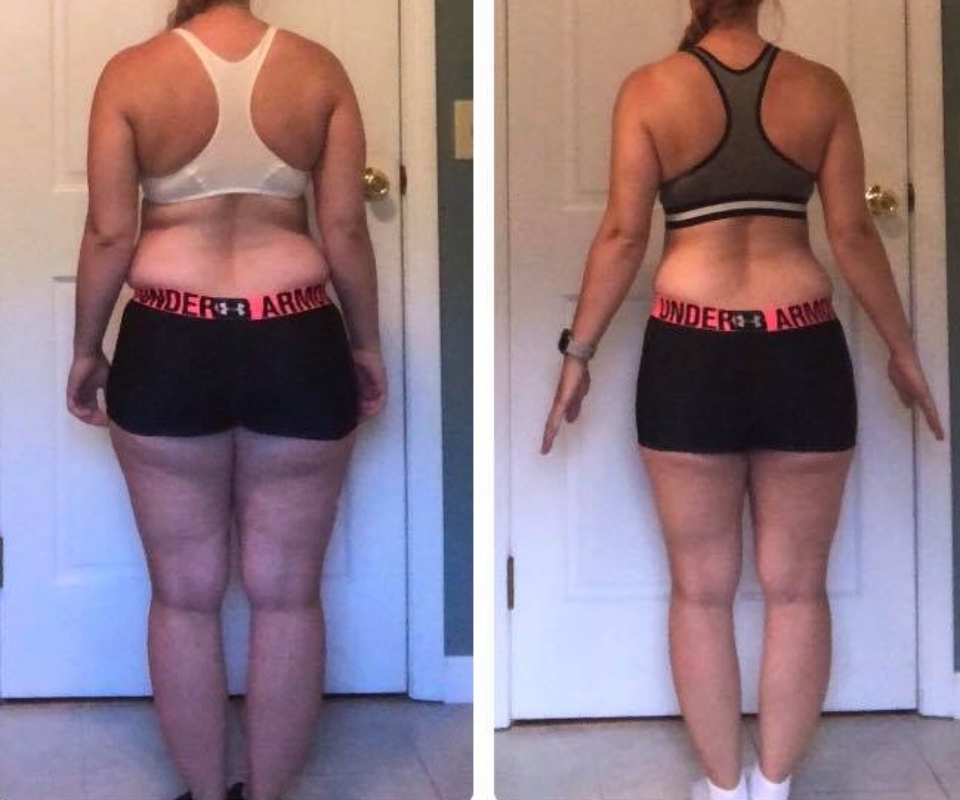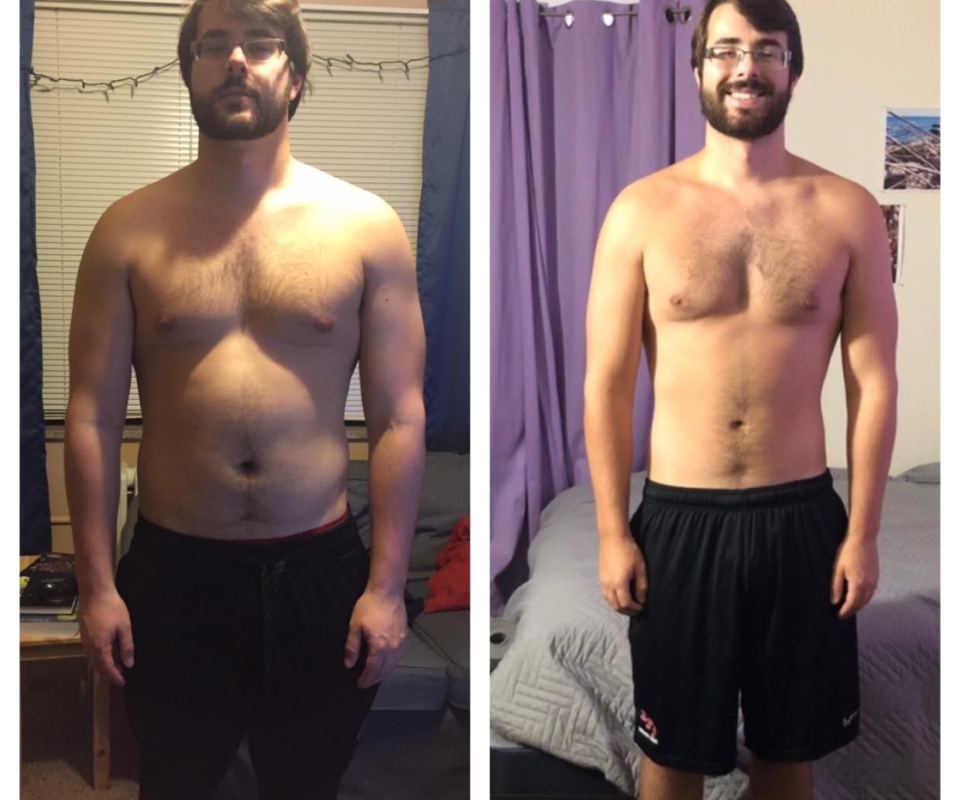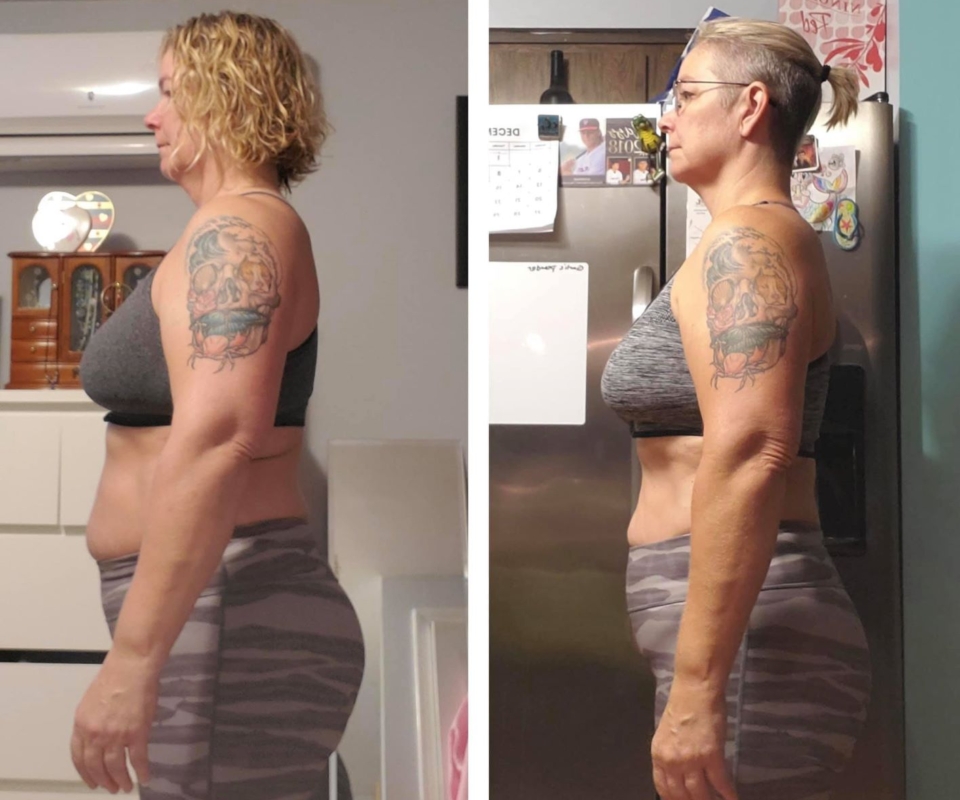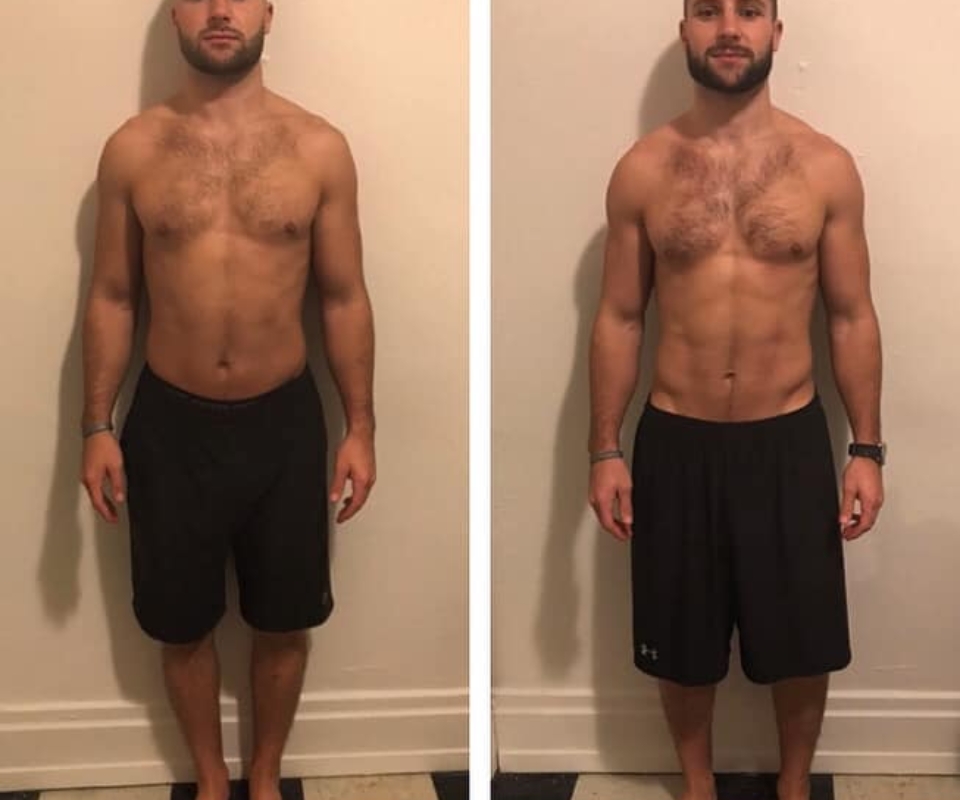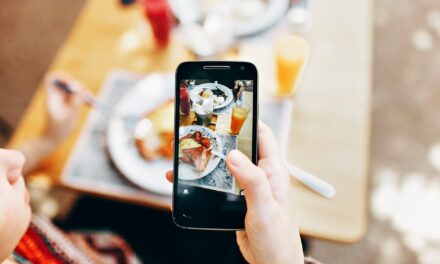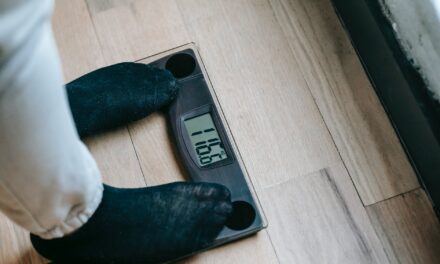Every week, I get on the phone with VIP Nutrition Coaching applicants and ask them to tell me about their eating habits. The overwhelming majority of them swear they “eat really healthy” and don’t know why they’re not seeing results.
Unfortunately, the overwhelming majority of them aren’t—but it’s typically not for lack of effort. The health and fitness industry LOVES to send people in the wrong direction (telling them to “eat clean” or cut carbs) if it makes a buck—and this leads people to pursue the wrong things and spin their wheels.
So the first thing I do with every potential client is clarify what really matters in the transformation process, and break down seven of the sneakiest reasons people don’t see results when they think they’re eating healthy. Once we clear this up and redirect their efforts, their results speak for themselves:
Now, how about I share these reasons with you so you can get results just like theirs?
Reason #1: You’re not eating that healthy
Very few people who get on the phone with me are tracking their food in any capacity—and if they are, they’re not doing it well or consistently. Because of this, it’s generally a safe bet that people are eating at least 20-40% worse than they think they are.
Couple this with the fact that people are more likely to say they’re eating what they think they’re supposed to be eating rather than what they’re actually eating, and you’ve got a recipe for massive frustration—as a lack of awareness AND ownership is a nasty combination.
I don’t fault anybody for this, though. It’s human nature to “find what we’re looking for” (ex. our healthiest food choices) and downplay our shortcomings.
Reason #2: You’re not tracking anything
Again, very few people who apply for nutrition coaching are tracking food intake consistently or well, and it doesn’t actually matter how healthy you’re eating (from a weight loss standpoint) if you’re eating too many calories for your goals. You could gain fat eating nothing but fruits and vegetables if you ate enough of them.
This is because whether or not you’re losing weight comes down to whether or not you’re in a calorie deficit: burning more calories than you take in.
Frankly, most of the rest of this list translates to, “You’re eating more calories than you think.”
At this point, people typically tell me:
⇨ They have a “good idea” of what they’re eating and don’t need to count calories, which is overwhelmingly untrue (as several studies have shown).
⇨ They “don’t have time” to count calories, which is an excuse so poor it’s not even worth ripping to shreds.
⇨ They think calorie counting is obsessive, which is like telling a financial advisor you think budgeting to get out of debt is over the top.
Assuming you’re not one of these people, and you’re not going to to let 5-10 minutes of effort stand between you and an impressive transformation, it’s in your best interest to get really good at counting calories and avoiding common tracking mistakes.
Reason #3: You take the weekends off
Most people don’t realize Friday night through Sunday night makes up ~33% of the week, and eat poorly during this stretch on a regular basis. Couple this with the fact that people don’t eat as well as they think midweek, and you’ve got a recipe for a very frustrated dieter.
[This is especially common with women, who don’t realize how impactful two days of overeating can be on their progress for the entire week—especially if their maintenance calories (how many calories it takes to maintain their bodyweight) are low.]
I’ve outlined why in the chart below, why shows how two 3,000+ calorie days (which aren’t hard to reach if you’re eating out) can erase a weeklong deficit:
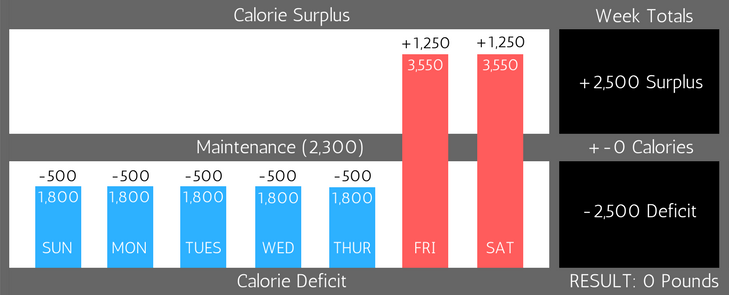
I should also point out that many people’s maintenance calories—including some men’s—are less than 2,300+ (the example I used in this chart), making it even easier to erase weekday efforts if you don’t have a system for navigating the weekend.
Reason #4: You eat too much fat
This might ruffle some feathers, but a high fat diet isn’t a good idea for the vast majority of dieters. I actually filmed an entire video on it on my YouTube channel:
In it, I break down how fat has nine calories per gram: more than DOUBLE what carbs and protein have—meaning small portions of fat-dense foods have more calories per bite. This limits how much food can be on your plate without going over your calorie target.
For example, four ounces of chicken (a lean protein source) has ~110 calories, and four ounces of 90/10 beef (a fat-dense protein source) has ~200 calories. So they take up the same space on your plate, but you’re saving ninety calories with the lower fat option.
At this point, I should clarify: dietary fat is NOT “bad” or something to avoid. Getting enough of it (20+% of your daily calorie’s worth) is important for:
✓ Nutrient absorption
✓ Hormone health
✓ Cognitive function
✓ Heart health
✓ Healthy hair and skin
But I’ve seen most of my clients manage hunger better when keeping intake on the lower end (20-35% of total calories) while keeping protein high—which I cover how to do in the One-Stop Nutrition Guide:
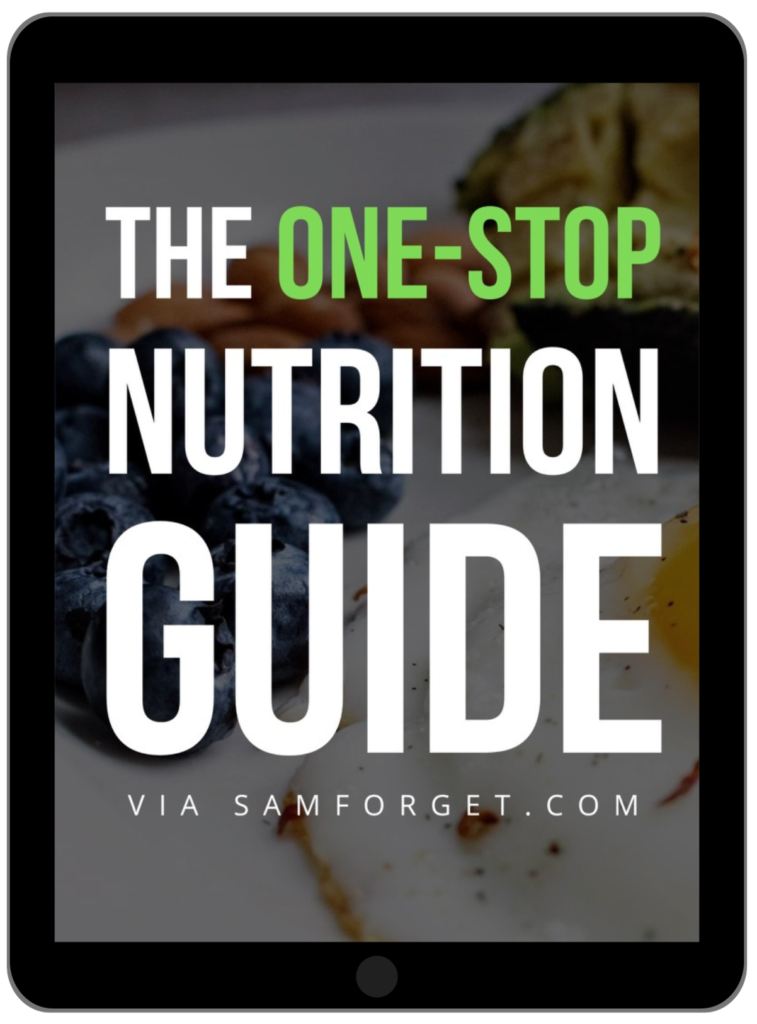
Just tell me where to send your free copy:
Reason #5: You undervalue “little stuff”
Admittedly, this has bitten me in the butt more than I care to admit. It’s not uncommon that I’ll grab a “handful” of cashews (100+ calories) on the way out the door, a “pinch” or two of shredded cheese (75+ calories) when making an omelette, or the last few “bites” of my wife’s home fries (150+ calories).
Independently, none of these are a big deal or harmful to progress. What IS harmful, though, is how infrequently we remember (or admit) we’ve done this—leading to 300-500+ unlogged calories per day. Other examples include:
✕ Cream in your coffee
✕ A little olive oil on the pan
✕ Taste testing while baking
✕ Finishing your kid’s meal
Similar to budgeting, where you can’t ignore “little” purchases and expect to get out of debt, you can’t ignore “little stuff” when counting and expect to make consistent progress.
Reason #6: You overvalue your workouts
Again, this may ruffle some feathers: but I see this in the “group exercise crowd” on an extremely regular basis. Your monitor, watch, or app might tell you burned 800+ calories during a class or circuit… but it’s wildly inaccurate.
In fact, a study conducted by Stanford University showed that the most accurate counters STILL overestimated calories burned by 27+% (and most weren’t even close to this accurate).
Because of this, it’s tempting to “eat back” calories burned, subconsciously thinking that you’ve worked hard enough for it to not matter—but you’d be surprised how small of a role workouts can play in the transformation equation if (A) your eating isn’t in check and (B) your workouts aren’t well-structed for fat loss goals (and group exercise classes typically aren’t).
Reason #7: You’re falling for misleading marketing
If I were to summarize “good nutrition advice” in a single sentence, I’d tell you to eat foods that are ingredients, not with ingredients, and to avoid looking for labels with:
✕ “Reduced fat”
✕ “Non-GMO”
✕ “No sugar added”
✕ “Protein-packed”
✕ “Good source of fiber”
✕ “40% less calories”
This is because many of these items are “fake healthy,” in that they’re not as nutritious OR fat loss friendly (as their marketing might lead you to believe). Again, single ingredient foods are best for fat loss goals, especially when eaten in the right amounts.
So if you haven’t already, be sure to request your copy of the One-Stop Nutrition Guide, so you can begin fine-tuning your decision-making and setting yourself up for a successful transformation:

Just tell me where to send yours:


